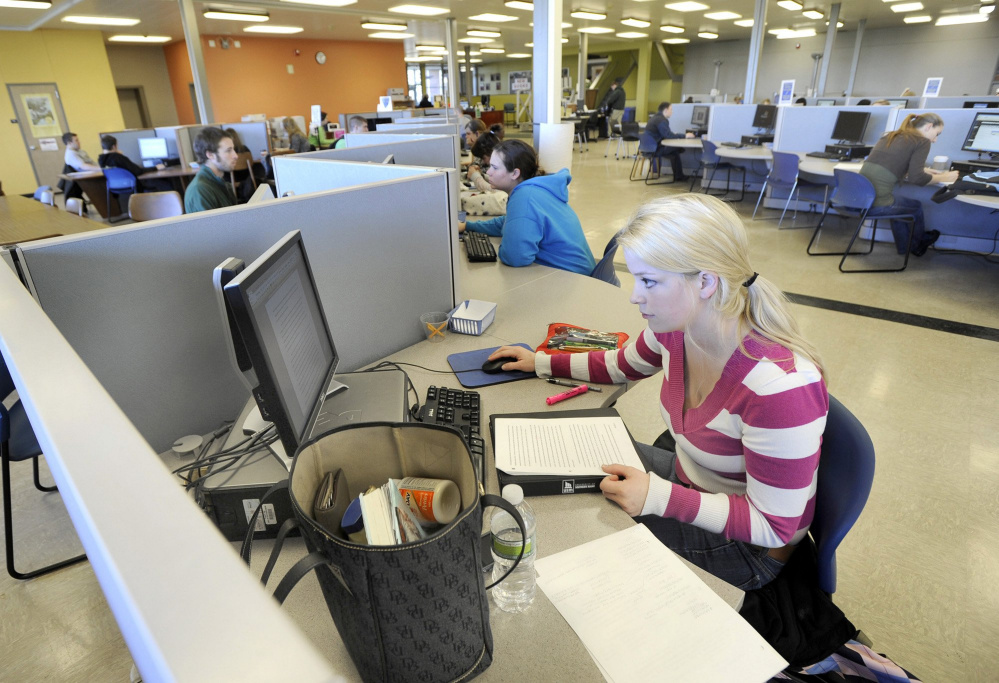No student should ever have to choose between going hungry and furthering their education. Yet, across Maine, college students are facing this decision every day.
The unfortunate reality is that Mainers live in one of the most food-insecure states in the nation, where one in five children struggle with hunger, according to Feeding America, a national network of food banks that studies food insecurity in the United States.
According to the U.S. Department of Agriculture, Maine ranks first in New England for food insecurity and seventh in the nation overall. Nationally, Feeding America found that 49.3 percent of the college students it serves reported having to choose between food and educational expenses such as books, tuition and housing.
While the statistics are shocking, there is good news: Since 1990, credit unions in Maine have been at the forefront of solving Maine’s food insecurity challenges through the Maine Credit Union League’s annual Campaign for Ending Hunger. To date, the campaign has raised $7.2 million for local food pantries in every Maine county – but more importantly, the initiative has brought food insecurity into the spotlight.
As president of University Credit Union, my daily priority is to help our members — the majority of whom are University of Maine System students, alumni, faculty, staff and their families — achieve their personal and financial goals. It wasn’t until recently, however, that I realized just how widespread food insecurity is among our college students, particularly students from low-income households.
Similarly, my colleague Todd Mason, president of the Maine Credit Union League, believes that “while the issue of childhood hunger has received a lot of attention in recent years, there has been a growing problem of hunger for young adults including among college students. The cooperative efforts of Maine’s credit unions in working together to end hunger allows these types of focused efforts to support the larger campaign.”
Contrary to popular perception, college students across our state are, in fact, having to choose between basic needs and their education.
In Aroostook County, where nearly 17 percent of households are considered food insecure, the Bengal’s Outreach Food Pantry at the University of Maine at Fort Kent regularly assists 25 people every month. The Black Bear Exchange, located on the University of Maine campus in Orono, and The Thrifty Beaver Co-op at the University of Maine at Farmington each provide food assistance to nearly 60 people every month. And on the University of Southern Maine’s Portland campus, the food pantry in The Well assists nearly 20 people each day.
Shannon Coffin, child hunger programs manager at Good Shepherd Food Bank, believes that skepticism about food insecurity among students comes from having too limited of a view of who attends our state’s colleges and their background.
“With the country’s labor market changing, we see more adults with families or adults without parental support signing up for post-secondary education, so they can increase their earning potential long-term,” Coffin explains. “These students make significant short-term sacrifices to better their long-term financial outcomes, and are often struggling to make ends meet so that they can complete their programs. When we support them with food assistance during their efforts, we increase the likelihood that they will graduate and successfully improve their economic futures so that emergency food isn’t something their family needs anymore.”
The fact is, campus food pantries emerged to fill a real need, and more are opening every year. In September, the University of Maine at Presque Isle – my hometown – opened its first campus food pantry, in Pullen-Folsom Hall. These pantries, however large or small, can mean the difference between a student leaving college for financial reasons, and that student successfully completing their degree and achieving their goals.
Through the month of December, University Credit Union is collecting donations of nonperishable food items suitable for student living facilities at its locations around the state. Monetary donations can be made by mail or in person at any UCU location. Donors may elect to specify a campus food pantry of their choosing; any donations not designated as such will be equally distributed to the five pantries.
With your support, together we can ensure that hunger is never an obstacle to student success.
Matthew Walsh is president and CEO of University Credit Union. For more information on the credit union’s Ending Hunger on Campus in Maine campaign, visit ucu.maine.edu/endinghungeroncampus.
Send questions/comments to the editors.


